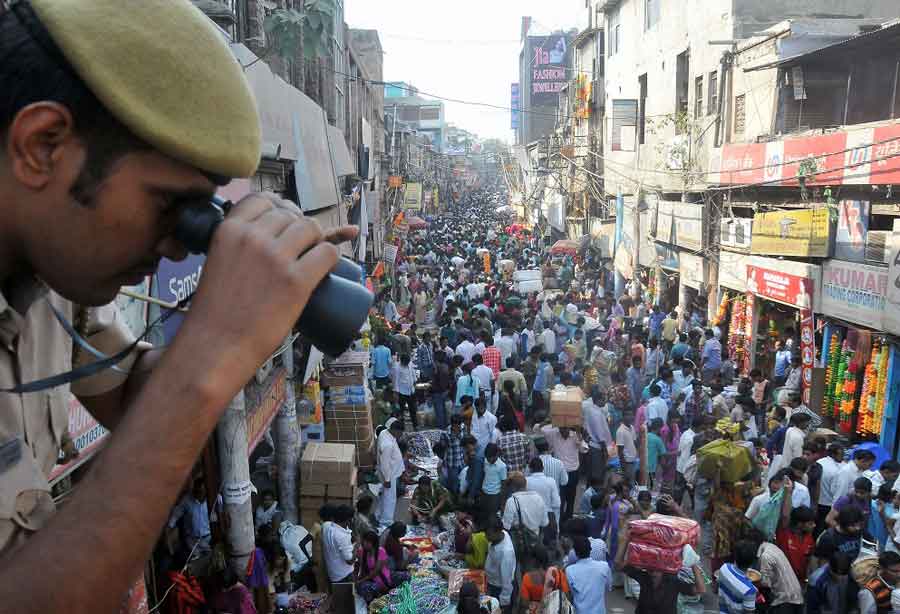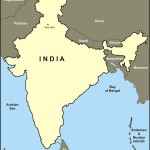During the last few days or so, due to uncontrollable repeated cases of rape and violence in different parts of country, the Indian Police perspective of dealing with law and order problem has come in for a lot of criticism. Despite ongoing criticism of policing, India still broadly follows the 1861 British Police Act which has become obsolete and outdated. The Soli Sorabji Model Police Act of 2006 could not be implemented due to opposition by one state or another. Earlier the decision of the government to appoint a new panel to look into the recommendations of the Law Commission, the National Police Commission, the National Human Rights Commission and the Vohra Commission provided some ray of hope for the future prospect of policing but the implementation has still remained a chimera. This has also happened on account of Police being a state level subject under article 246.
The Indian Police is basically attuned to information gathering. Consequently, scientific methods and skill are not given sufficient importance and this is often followed by the use of excessive force and third degree methods, more so in far flung areas.
On the other hand, the political and economic interest of the powerful syndicates further hampered any chance of a concrete policy framework. The increasing criticism from various quarters is indicative of the prevailing dissatisfaction with present issue of policing .Apart from undertaking counter terrorist operations the police have to also play a crucial role as protector of the day-to-day law and order situation. This has increased pressure on them to get quick results. Besides, the prevailing level of dissatisfaction among the subordinate level police officers has adversely affected the attitude of the Police towards problems.
The Police are often asked to fight a low cost war where the enemy is their own countrymen. Calling the Police to put down civil disturbances is a tedious job. It is sad but true that no concrete effort has been made to bring about changes in the conventional methods and training procedure for the police ever since the police commission report which was drafted many years ago .
The Indian Police is basically attuned to information gathering. Consequently, scientific methods and skill are not given sufficient importance and this is often followed by the use of excessive force and third degree methods, more so in far flung areas. The Police as extremely vital source of security for the community should also take into account the desires and aspirations of the common masses .In this regard steps should be taken to instill a strong sense of welfare into the techniques and content of new policing. The values, attitudes, methods, aspirations and commitment, etc of these services need thorough examination. The quality and efficiency of the security forces largely depend on their service conditions, cooperation, training, practice, level of interaction with general masses and strict methods of appointment. It is therefore in the interest of the government to recruit and attract personnel of high integrity, great caliber, train them to their task superbly and ensure satisfactory working conditions. Efforts should be made that only committed and right type of candidates get selected for this job.
Although failures in the political and administrative dimensions are often unfairly blamed on India’s police the fact is that the recent process of democratic decentralization particularly after 1962 onwards, economic liberalization from1991 onwards do pose new challenges to the Indian police and para-military forces. Besides, the rapid increase in the number of terrorist and caste and class violence during recent years have made the job of maintaining law and order extremely difficult. For successful training of officials of the para-military and police forces it is important that certain parameters of pre-recruitment education, experience, proportion of insiders and outsiders, methods of recruitment, postings, Length of service are again reviewed in the light of modern myriad Challenges.
There is also need for more productive relationship between para-military forces, intelligence agencies, local police, the army, and the local population. It has been found that police officials feel more comfortable in working at Headquarters rather than in rural areas. The implications of this and its pernicious ramifications for internal security needs to be tackled. In this regard the rotation of officers between terrorist affected areas and peaceful areas needs to be appropriate. Similarly the deputation process to other services including the intelligence agencies needs to be properly examined.
To become more effective machinery, the police must attempt to expand its scope and bring about strategic mechanism with the help of general public, intelligence agencies and international security apparatus.
For ensuring the neutrality of the police force the selection of its leaders is very crucial. With the formation of the National Human Rights Commission there is an urgent need to change the attitude of the police towards the general populace and this is possible only through the inculcation of a humane approach and study of human rights legislations. In changing environment the police need to diversify its activities by bringing together technical and professional expertise based on many decades of experience in maintaining internal security. In this regard the following suggestions may be worth considering:
- The need for brief training even during the security operations with a particular emphasis on sensitising personnel to issues relating to human rights, civil liberties, prisoners rights, etc.
- The better management of security development programmes for different levels of police personnel.
- Police officers trained to provide active but neutral leadership to their units.
- Police officers can be trained to take the initiative in implementing development plans in consultation with experts from various branches.
- Developing capability to anticipate security needs. This is possible by conducting specialized courses for monitoring security situations.
Coordination between the panel and various security agencies could be of immense use in this regard. What is needed is the political will and courage to implement these suggestions effectively and promptly. To become more effective machinery, the police must attempt to expand its scope and bring about strategic mechanism with the help of general public, intelligence agencies and international security apparatus. Measures alone cannot become effective unless prompt and effective amendments are introduced in criminal judiciary system.





